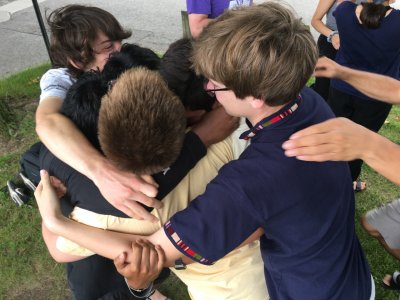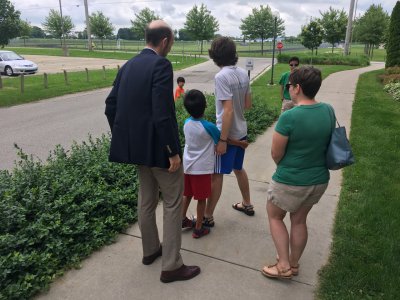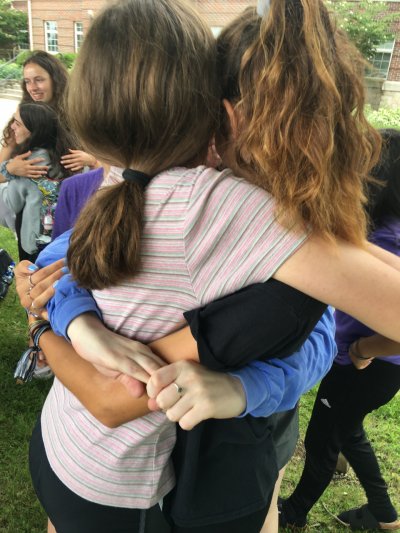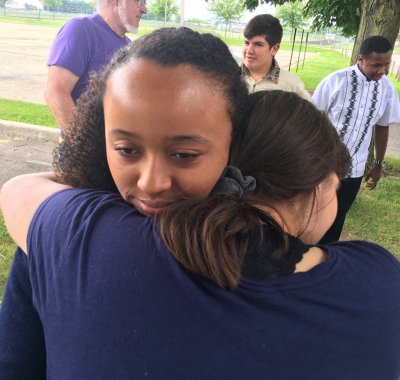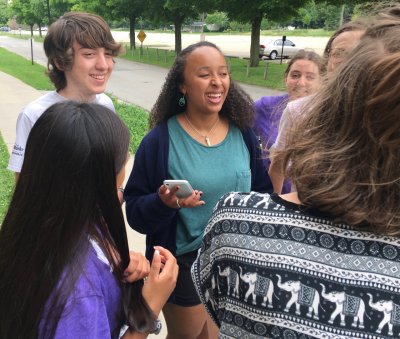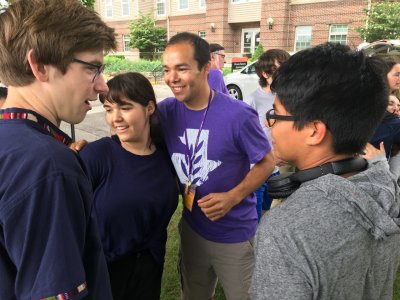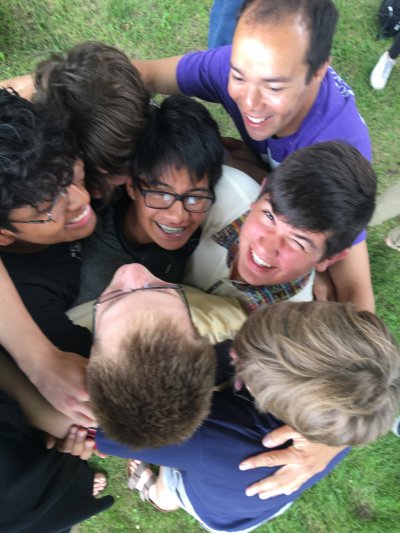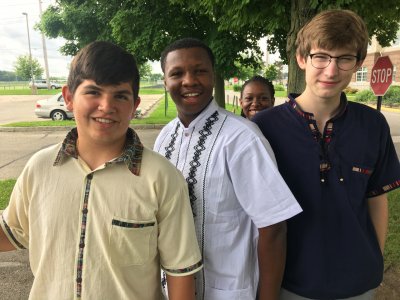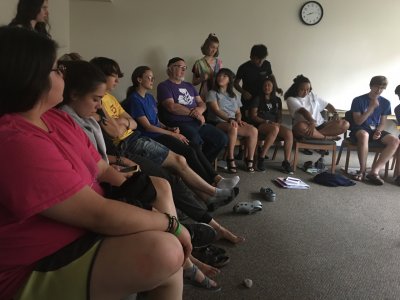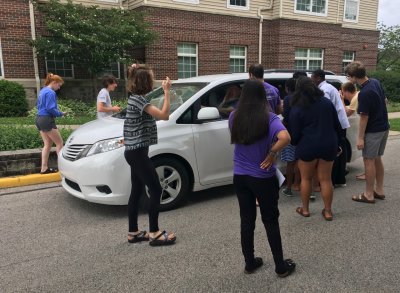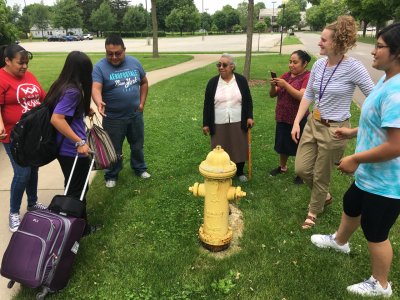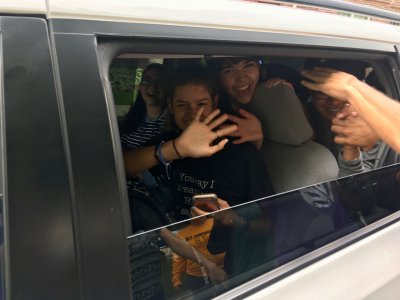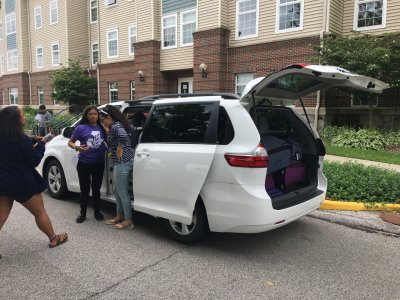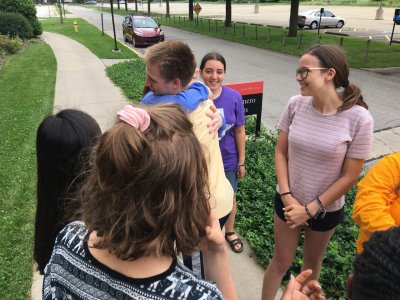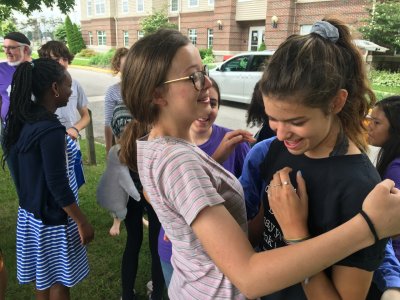SSTT Farewell
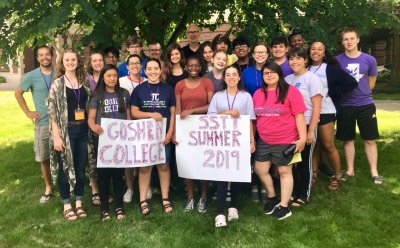
As of yesterday afternoon, we said goodbye to the last of the SSTTers, who left from Goshen’s campus after two days of reorientation and debriefing. Sunday we talked about how our “single stories” about Guatemala had been complexified and complicated; sang together; finished writing our pilgrimage journals; did a “thank you” video for the Lilly Foundation, Religion Division, which helped fund the Study-Service Theology Term; had worship, which included a prayer circle with every member of the group praying individually for every other member; and built an “Ebenezer” of stones below the Wyse Building stairs. After 16 minutes of Centering Prayer Monday morning, we spent about 90 minutes writing individual affirmations for each member of the group, and sent those home with students in envelopes, with instructions to open them when they needed a bit of a lift.
Goodbyes Monday afternoon were heartfelt and tearful. It’s hard to imagine that most members of this group did not know each other at all, and now it feels like we’ve known each other for years. Some will see each other on upcoming trips to various hometowns (Atlanta, Virginia, Florida) or youth conventions, and some live close enough by that they can visit. The group also intends to keep in touch through social media, and several members are already talking about group reunions.
In one of her closing journals, Valeria wrote this (used with permission), partly in relation to the various women’s cooperatives and foundations we visited on the trip: “These types of foundations have inspired me to be the change. In order to start, I’ll connect more with my faith to add to the compassion and empathy I already have …. The Guatemalan experience has affected me the way it did because of the sessions and guest speakers. They have educated me in numerous ways that a typical U.S. classroom setting would not …. In this setting, we have seen the realities while learning about them through professional sociologists who don’t censor their lectures. This is the real experience.”
In response to visiting the Father Rother memorial, Jacob wrote (used with permission): “It was inspiring because he originated in Oklahoma and initially had no connection to Guatemala …. This is inspiring because he like me was just an average American with big dreams and the desire to change the world. This gives me hope because I don’t know what my life holds or will turn into but if I have the positive spirit and aspiration to do well, I can with God. I thank the Lord for all of the inspiration I’ve seen on this trip. I want to live my life for Him and help the world go towards Him.”
Seth wrote (used with permission): “I will miss Guatemala greatly …. Learning about how selfishness and exploitation have been combatted in Guatemala has given me hope for society and a sense of direction. I feel that I am called to fight this selfishness in some way; to find some means to make a change in the world. I wish that everyone could have this same opportunity as we have had on this trip. I feel that if all or even most of the people of the world could learn what we have learned there would be a lot more acceptance and peace in the world.” Seth finished that journal entry with this free-verse poem:
“I hope
that those who are blind
to the pains of the world
will learn to see
I pray
that those who are deaf
to the cries of the broken
will learn to hear.”
Our Study-Service Theology Term goal — to help young people learn to think theologically and to consider churchly vocations — has been embodied in the young people on this pilgrimage to Guatemala. We are grateful to Goshen College and the Lilly Endowment, Religion Division, and to CASAS and SEMILLA and all of our Guatemalan hosts, for making this experience possible. Thanks for joining us on the journey.
